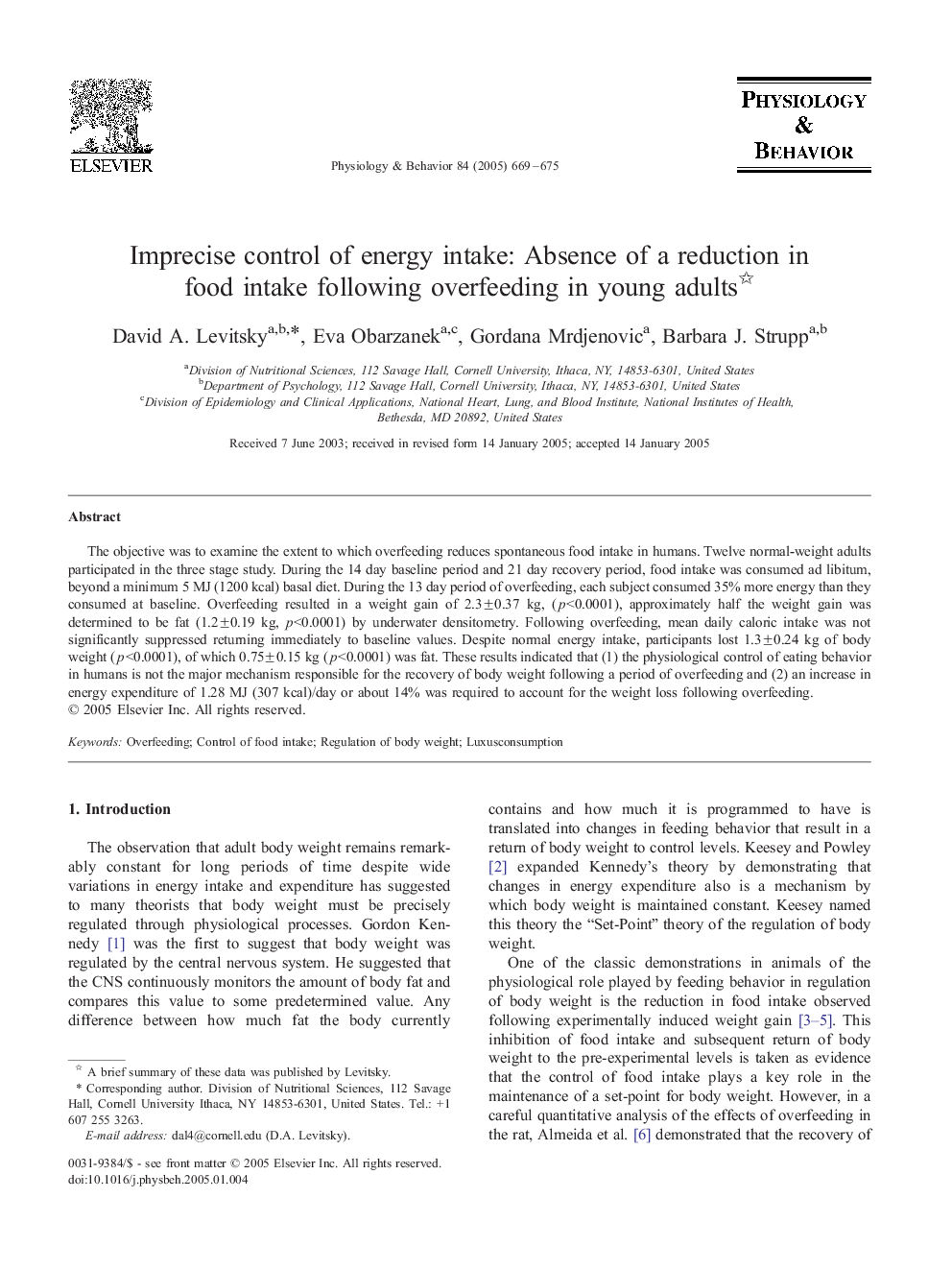| Article ID | Journal | Published Year | Pages | File Type |
|---|---|---|---|---|
| 9149597 | Physiology & Behavior | 2005 | 7 Pages |
Abstract
The objective was to examine the extent to which overfeeding reduces spontaneous food intake in humans. Twelve normal-weight adults participated in the three stage study. During the 14 day baseline period and 21 day recovery period, food intake was consumed ad libitum, beyond a minimum 5 MJ (1200 kcal) basal diet. During the 13 day period of overfeeding, each subject consumed 35% more energy than they consumed at baseline. Overfeeding resulted in a weight gain of 2.3±0.37 kg, (p<0.0001), approximately half the weight gain was determined to be fat (1.2±0.19 kg, p<0.0001) by underwater densitometry. Following overfeeding, mean daily caloric intake was not significantly suppressed returning immediately to baseline values. Despite normal energy intake, participants lost 1.3±0.24 kg of body weight (p<0.0001), of which 0.75±0.15 kg (p<0.0001) was fat. These results indicated that (1) the physiological control of eating behavior in humans is not the major mechanism responsible for the recovery of body weight following a period of overfeeding and (2) an increase in energy expenditure of 1.28 MJ (307 kcal)/day or about 14% was required to account for the weight loss following overfeeding.
Keywords
Related Topics
Life Sciences
Biochemistry, Genetics and Molecular Biology
Physiology
Authors
David A. Levitsky, Eva Obarzanek, Gordana Mrdjenovic, Barbara J. Strupp,
